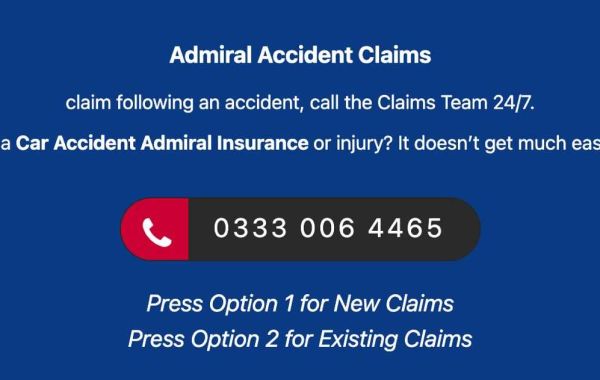Being involved in a car accident can be a distressing experience, but knowing what to do in the immediate aftermath can make a significant difference. Here’s a step-by-step guide to follow after a car accident in the UK to ensure your safety, protect your rights, and make the claims process smoother.
1. Ensure Safety First
After an accident, your first priority is safety. Check for injuries to yourself and others, and move to a safe area if possible.
What to Do:
- Turn on your hazard lights to alert other drivers.
- Move out of the way of traffic if it’s safe to do so.
- Call emergency services if anyone is injured.
2. Check for Injuries
Check yourself and your passengers for any injuries. Even if no one appears seriously hurt, it’s essential to stay calm and assess the situation.
What to Do:
- Call an ambulance if anyone is injured or in pain.
- Even if there are no immediate signs of injury, it's a good idea to visit a doctor, as some symptoms may appear later.
3. Notify the Police
You are legally required to report certain types of accidents to the police in the UK, especially if someone is injured or if there is property damage.
What to Do:
- Call the police if the accident involves injury, death, or if property damage has occurred.
- Request an accident report from the police, as it may be necessary for your insurance claim.
4. Exchange Information
Collect and exchange key details with all parties involved in the accident. This will be crucial when reporting the incident to your insurer.
What to Exchange:
- Names, addresses, and contact details of all involved parties.
- Vehicle registration numbers, make, and model of vehicles.
- Insurance details of the other driver(s).
- If possible, gather details from any witnesses present.
5. Take Photos of the Scene
Documenting the accident scene is vital for supporting your claim. Photographs can provide critical evidence for insurance companies and, if necessary, legal proceedings.
What to Capture:
- Damage to all vehicles involved.
- Location of the accident and road conditions.
- Any visible injuries to yourself or passengers.
- Registration plates of all vehicles involved.
6. Avoid Admitting Fault
It’s natural to want to apologize after an accident, but be cautious about admitting fault, even if you believe you may be responsible.
Why This Matters:
- Admitting fault can impact your insurance claim.
- The official investigation will determine responsibility, so it’s best to avoid making any statements that could be used against you.
7. Notify Your Insurance Company
You must inform your insurance company about the accident as soon as possible, even if you do not plan to make a claim. Many insurers have a set time frame for reporting incidents.
What to Provide:
- Details of the accident, including time, date, and location.
- Contact information of the other party.
- Photos and any police report if applicable.
8. Obtain a Medical Report
If you or your passengers were injured, make sure to obtain a medical report. Even minor injuries should be documented, as they can be crucial for your insurance claim or any personal injury claims.
Why It’s Important:
- Injuries like whiplash or soft tissue damage may not be immediately apparent.
- A medical report can provide essential evidence for your claim.
9. Report the Accident to the DVLA
In some cases, you may need to report the accident to the Driver and Vehicle Licensing Agency (DVLA), especially if there’s damage to another vehicle or property. Failure to do so could result in legal consequences.
When to Report:
- If the accident caused damage to another vehicle, property, or infrastructure (e.g., lampposts, barriers).
- If you did not provide your details at the scene.
10. Keep a Record of All Communications
Throughout the process, keep detailed records of any communications related to the accident, including conversations with your insurance company, medical professionals, and any legal representatives.
What to Record:
- Phone calls, emails, and letters related to the accident or claim.
- Medical bills, repair costs, and any other expenses.
- Police or legal reports obtained during the process.
Conclusion:
Being prepared for what to do after a car accident in the UK can make the situation less overwhelming. By following these 10 steps, you’ll protect yourself legally, ensure that you and others are safe, and make the claims process more manageable.
Visit: https://claimsnumber.com/








